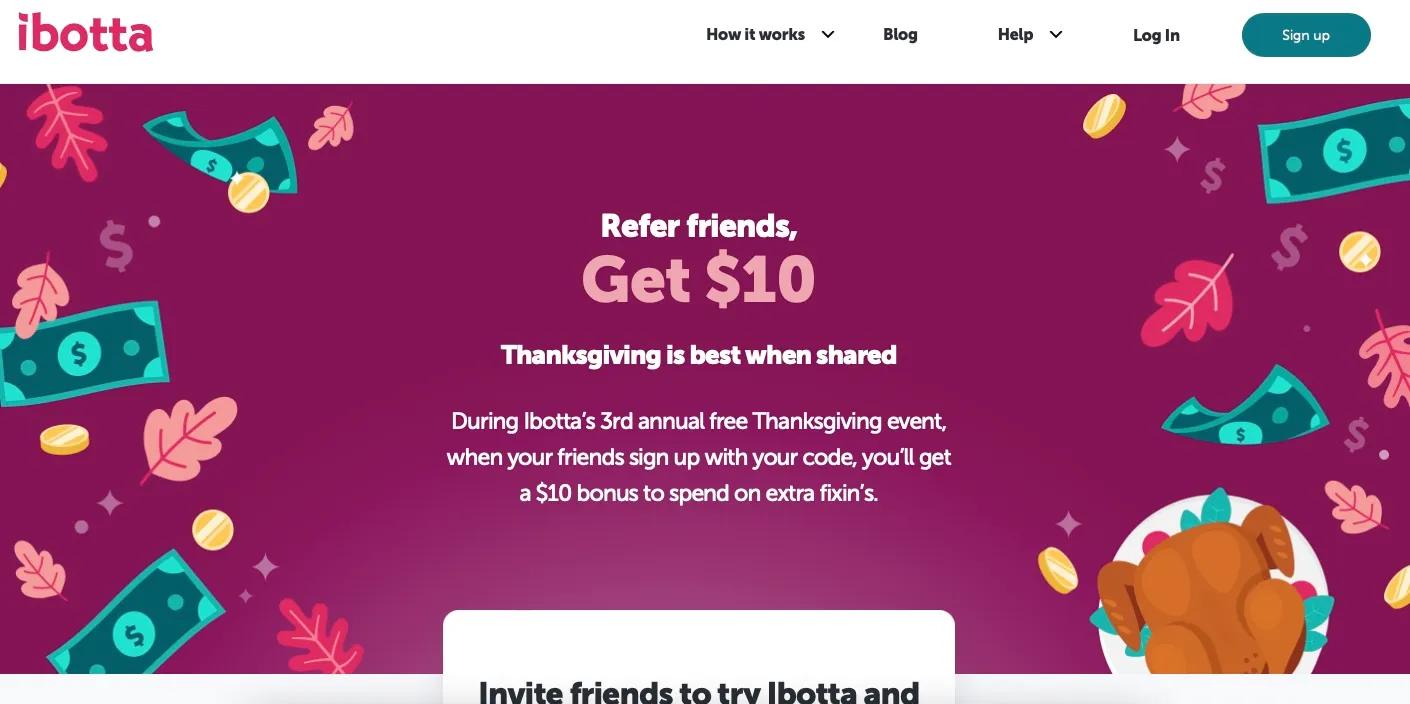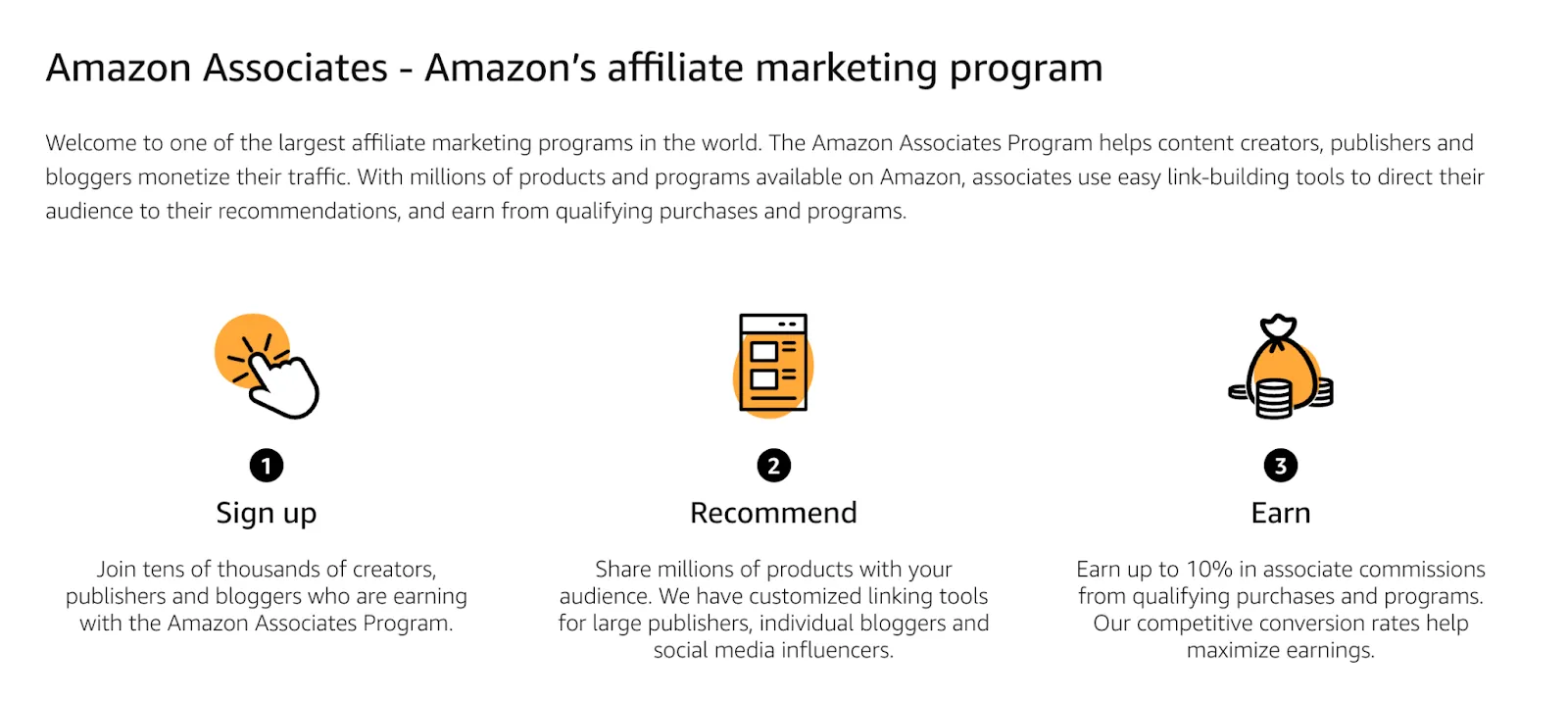Referral marketing vs. affiliate marketing — aren’t they the same thing?
Not really!
Although it’s true that both referral marketing and affiliate marketing are effective acquisition strategies for large and small businesses. Their key similarity is that they rely on the power of incentives to drive revenue.
But, that’s where the resemblance ends.
Their strategies, promotion tactics, techniques, and audience targeting are completely different.
So, how do they differentiate? And which one of the two is the right strategy for your brand? Should you use just one or both of them together?
This article will answer all your questions.
So, without further ado, let’s get started.
Referral marketing is a technique that focuses on promoting and increasing sales through referrals from existing customers. Following the principles of word-of-mouth marketing, referral marketing involves asking customers to refer products and services to their friends, family, and other contacts.
Referral marketing is an effective way to drive traffic to a website, increase sales, and build brand loyalty.
The basic idea behind referral marketing is to reward customers for referring their acquaintances to a product or service.
Rewards are usually in the form of a discount, a free product, or even just a thank you. It is a great way to incentivize customers to spread the word about a business and build relationships with customers.
Referral marketing can be used to increase brand awareness and attract new potential customers, as well as to reward existing customers for their loyalty. When done correctly, referral marketing can be a powerful tool for businesses.
When it comes to referral marketing, it’s important to create a campaign that’s effective and engaging. The campaign should have a clear goal, a catchy message, and incentives that are attractive to customers.
It’s also important to track the performance of the campaign and adjust it as needed.
Compared to other forms of marketing that usually aim at the general audience, referral marketing offers leverage to a brand’s existing customers.
Speaking about other types of marketing…
Affiliate marketing is an online marketing strategy that involves rewarding affiliates, or individuals who promote products or services, for each sale they generate.
It’s more like a performance-based relationship, wherein you’re compensating the affiliates for the customers they’re bringing in.
The idea behind affiliate marketing is simple:
In a nutshell, affiliate marketing relies on finding brand advocates that can reach out to a large target audience and promote your products and services to the right people.
Usually, customers don’t know these advocates personally. This is a crucial difference in setting affiliate marketing apart from referral marketing.
Let’s dive deeper into the differences between referral marketing and affiliate marketing.
At first glance, referral and affiliate marketing seem similar strategies. Indeed, both of them do have a lot in common — referrals, bonuses, compensations, and of course, the power of word-of-mouth.
It’s easy to get them confused. Let’s discuss the main differences between them to help you get a clear understanding of the two concepts.
From the very beginning, the type of users who join your affiliate program will be very different from those who join the referral marketing program. The key difference between the two individuals is:
Referral marketing efforts involve pre-existing, satisfied customers, who’re happy with your business and products and recommend them to people they know.
They’re actually advocates of your brand, who’ll refer you to their social circle through word-of-mouth.
In referral programs, every customer is given a unique referral code or link, that they share with their friends and family. And, when you get those new referred customers, you reward the ones who referred them to your business in either monetary terms, special offers, products, etc.
Affiliates are usually content creators, influencers, bloggers, and even agencies, who’re interested in generating some form of income by promoting different businesses.
People usually apply to join a brand’s affiliate program or can be contacted by the business itself.
Another key difference between affiliates and referrals is the level of loyalty in their relationship with the ones they refer your business to.
In referral campaigns, there is usually a close relationship between a brand’s customer base and the people referred.
The referred people are usually part of one’s family, friends, acquaintances, colleagues, etc.
The pre-existing relationship between these two parties is what builds trust in your brand, which leads to a successful referral.
On the other hand, in affiliate marketing, there’s no direct link between the affiliate and the new customers they bring into the funnel.
So, anyone who clicks on an affiliate link doesn’t really know the affiliate personally. But, there does exist a level of trust between these two parties.
For instance, if you subscribe to a YouTube channel of a famous influencer and you click on their affiliate links to buy something from a different brand, you don’t really know the influencer (affiliate) personally, but do trust their recommendation.
Rewards are the driving force in both affiliate and referral marketing strategies. So, even when people love your business, the added incentive of a reward will always keep them motivated to refer you to other people.
However, rewards can vary massively across both, some of them including discounts, coupons, cash, swag, upgrades, subscriptions, etc. Moreover, both programs can offer different incentive types, such as:
Although both marketing types offer similar benefits to their brand ambassadors, there are some subtle differences in how these apply.
A popular incentive for referrals can include cash discounts, coupons, credits, cashback offers, gift cards, etc.
Referral rewards are also given to existing customers (the ones referring your business to others), new customers (the ones who are being referred), and sometimes both (in the case of a dual-sided incentive).
An affiliate program usually offers a cash-based incentive to people who refer to others, in the way of a percentage share of every successful sale or a flat fee.
It’s pretty common for affiliates to get free products over and above their cash benefits, especially if they’re performing well or have been collaborating with a brand for a while
Despite their differences, referrals, as well as affiliate marketing programs, are great for all kinds of businesses.
Let’s move on to discussing some pros and cons of each to help you decide which one’s best for you.
The ultimate purpose of referral marketing is to bring in more and more customers for your business through word-of-mouth.
It has a massive influence on consumer buying behavior since word-of-mouth relies on customers’ trust and loyalty.
But, despite all its pros, something this huge certainly comes with its own set of cons. Let’s discuss them one by one.
According to Gigaom Research, as many as 27% of digital marketers state that they get over half of their new customers through referral marketing.
Let’s discuss the pros first.
Bigcommerce states that 74% of all consumers look at word-of-mouth as a key influencer of their purchase decision. Word-of-mouth surely is a strong point, isn’t it?
Referrers, or the people who spread the word about your brand, are loyal customers who’re using your products, understand your brand, and believe in you.
New people hear about your offerings and are inclined to buy from you since their trusted referrer uses your products. This way, you get new customers who’ll refer your business to new people.
Simply put, CLV is every dollar you gain from your customer’s lifetime of engagement with your business.
Analyzing this metric offers you an overview of:
A high CLV is an indicator that people trust your brand and shop a lot from you. They’re happy customers, satisfied with your services and the quality of your offerings.
Most importantly, your customers are loyal to you, so you have a great chance of growing further.
Since referral marketing programs are based on the power of loyal customers who trust your brands, it is often associated with a high CLV.
Referral marketing programs come with some weaknesses too. Let’s discuss some of these shortcomings.
The whole idea of referrals is based on passive marketing AKA putting your lead-gen strategy into the hands of a third party. And what this does is limit the control you have over the kind and quality of leads you generate.
If the right leads aren’t coming your way and getting converted, your business can’t achieve the right results. So, it’s like operating on luck when it comes to referral marketing.
There are multiple reasons that govern the success and failure of a referral marketing program. It can often give you unpredictable results depending on:
If your customers aren’t satisfied with your brand, they will not refer you to their social connections. In fact, your customers won’t recommend your business if they aren’t super excited about your offerings.
More often than not, businesses expect that as soon as they start their referral strategies, they’ll be bombarded with new leads and customers.
Referral programs just don't work that way. They’re not a magic wand.
It’s difficult to predict its growth and future without the right tools in your hand, such as referral marketing management software. Specialized software can actually take away the hassles and help you boost and track your growth step-by-step (more on that in a second).
Now, if you manage your expectations and you build genuine relationships with your customers, things will work your way.
Let’s see if the same applies to affiliate marketing.
Affiliate marketing has been a pioneer in digital marketing since the very beginning of the internet. However, it’s only recently that this topic is witnessing a surge in interest.
It’s safe to say that his advertising model isn’t going away anywhere, anytime soon. However, it’s not all rainbows and sunshine.
Read on to discover the good and the ugly of affiliate marketing.
According to Statista, spending on affiliate marketing in the United States alone is estimated to reach 8.2 billion USD by the end of 2022. This is a massive increase since 2017’s 5.4 billion USD.
The figures sure do display the power and influence affiliate marketing has on the world. Let’s take a look at a few more pros that affiliate marketing has.
Hiring new marketers in-house comes with a hefty cost of training, salaries, and other perks.
With affiliate marketing, this isn’t a major concern, since you’re only paying affiliate marketers for their performance. Their compensation will always be limited to the leads and conversions they generate for you.
That’s not to say you won’t have any expenses with affiliate marketing. However, your costs will be on the low side.
For example, you may need affiliate marketing tracking software to manage affiliate partners. Luckily, you’ll find such tools for a (usually) low monthly subscription.
At the same time, businesses with a high number of affiliate marketers and programs often employ full-time affiliate marketers and divide the entire marketing workload. But you can always employ part-time managers and rely on tracking software to manage everything better.
The biggest benefit of affiliate marketing is how quickly any business can scale, without taking a huge risk.
Most businesses might face a delay when it comes to paying their affiliate marketers. This means that businesses only pay their affiliates after a sale is completed.
Setting your business model and marketing program this way ensures the risk is low when it comes to acquiring new customers since you’re not really investing money in advance.
So, all in all, there’s absolutely no financial risk. If you begin your affiliate marketing program, you’re only dealing with running your business and its operations.
With every pro, there’s always a con attached. You can’t certainly judge the power of affiliate marketing without discussing its disadvantages too, so let’s go over them next.
It’s really easy to start an affiliate marketing program. There’s very little cost attached with a high profitability rate. But this also means that anyone can start such a program.
Anyone can begin affiliate marketing programs and win more market share over you, You certainly don’t have a lot of control over your competitors.
So, you always have to one-up your competitors in terms of the rewards you offer to affiliates.
CLV tells you how much your brand can earn from customers in the span of their relationship with your business.
Affiliate marketing is often associated with businesses with lower CLV.
Since affiliate marketing programs pay for each new customer that comes your way, affiliates are more likely to focus on scaling and increasing customer count rather than customer retention.
All this theory must’ve gotten you pondering. Let’s simplify things and look at some real-life examples of businesses that found success with these marketing strategies.
Many brands have witnessed exceptional growth with referral marketing. Here are our best picks:
Vegetables and fruits delivery service, Oddbox, ran an in-house referral marketing program before they partnered with Mention Me to acquire more and more customers and scale their growth.
Their referral marketing program helped them acquire 4x more customers.

Image Source: Oddbox
Their program is simple.
After a loyal customer recommends Oddbox to a new lead, both the customer and the new connection will get a discount coupon emailed to them through Mention Me.
The new connection can apply the code during the signup process, and once done, they’ll receive a code that the customer can apply to their next order. This dual-sided incentive offers £10 to both parties.
Another great example of a popular referral program is the one created by the cash-back rewards platform Ibotta. Their refer-a-friend program only comes with a code and not a referral link like most brands offer.

Image Source: ibotta
This kind of referral code helps new users to download the Ibotta app and manually type in the code to get $10 off.
Their program also provides options for loyal customers to invite their friends and family members via social media channels that automatically adds the referral code to their first purchase.
Now, let’s move on to discussing some great affiliate marketing program examples that have set a benchmark for budding marketers to learn from.
To help your business carve its own affiliate marketing program, we’ve rounded up one great program example to help you be inspired.
Probably one of the most famous affiliate programs in the world is Amazon’s. Their affiliate program is called Amazon Associates.

Image Source: Amazon
Here’s why it works:
That being said, it’s now time to pull up your socks and get started with the right affiliate or referral marketing strategy, depending on your brand’s requirements and expectations.
One more thing before you go.
Both referral and affiliate marketing strategies are directed toward acquiring new customers.
Among their many similarities and differences, both approaches offer effective results, allowing brands to use them together to get more revenue and fulfill their marketing goals.
If you wish to delve deeper into the details of setting up any of these programs for your brand or are confused about which one’s perfect for your brand, don’t overthink it.
You can book a live demo with Viral Loops to understand what’ll work best for your needs.